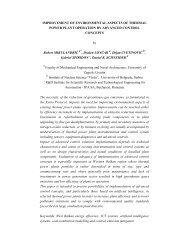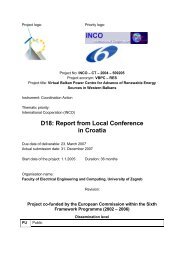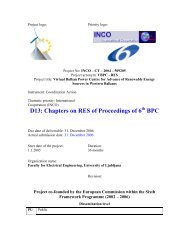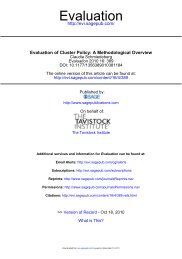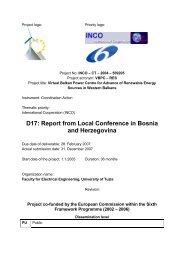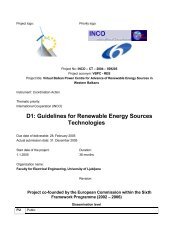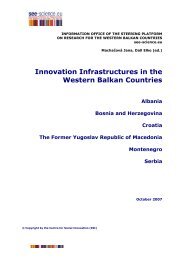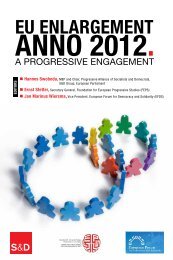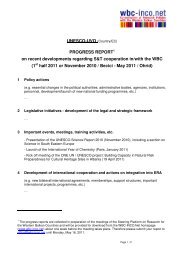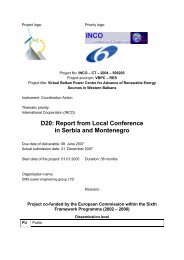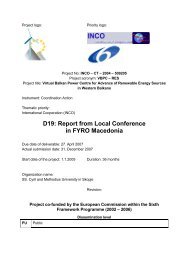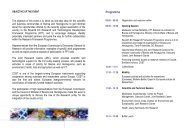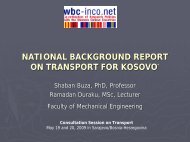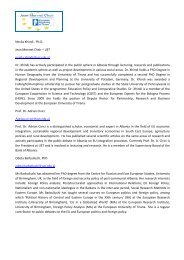Regional Balkans Infrastructure Study Transport - WBC-INCO Net
Regional Balkans Infrastructure Study Transport - WBC-INCO Net
Regional Balkans Infrastructure Study Transport - WBC-INCO Net
You also want an ePaper? Increase the reach of your titles
YUMPU automatically turns print PDFs into web optimized ePapers that Google loves.
!" # $ $ $%&<br />
The course of further reforms has been set, but much preparatory work is still<br />
required. This is an area where technical assistance would facilitate and accelerate<br />
the development.<br />
Efficient information systems are of key importance to the management of the<br />
transport sector. Such systems require up-to-date information about the features<br />
and condition of the infrastructure as well as traffic and accidents. There is a<br />
need for improvement in this area, and financial and technical assistance would<br />
be valuable. In the rail, port, airport and inland waterway sectors, the existing<br />
systems are mostly paper-based which hampers efficient utilisation of data. In<br />
three of the countries, the road inventories have not been updated recently, and<br />
there is a lack of data on the condition of pavements and structures. In all countries,<br />
the police are responsible for the collection of road accident data (except<br />
Kosovo) and there is no formal co-operation between the police and the road<br />
authorities which substantially hampers the systematic improvement of road<br />
safety.<br />
One of the bottlenecks for improving the transport infrastructure is the lack of<br />
recent experience - in the region - on the preparation of projects for international<br />
financing and tendering. Within REBIS, training seminars have been<br />
held in the 5 capitals in order to present an overview of the project cycle and to<br />
introduce EC procurement procedures. The participants were public servants<br />
from the relevant transport authorities and companies, but also staff from the<br />
private sector. The seminars were very well received, but they also revealed a<br />
huge need for further capacity building in this area.<br />
,% + "<br />
There are substantial differences in the taxation levels of road users in the five<br />
countries. Particularly, the taxation on heavy vehicles in the Republika Srpska<br />
is low compared to other countries, and there may be scope for harmonisation<br />
in order not to distort competition, particularly if the level of road user charges<br />
is increased, in the future. The present levels of charges are far below the levels<br />
of the EU.<br />
Given the severe backlog in road maintenance and reconstruction, it is important<br />
for the countries of the region to develop sustainable financing strategies<br />
within the road sector. Available information seems to indicate that present<br />
road user charges largely cover present spending on routine and periodic maintenance<br />
of the networks. There are, however, strong indications that present<br />
spending is totally insufficient to maintain an acceptable quality of the networks,<br />
in the long run. This is particularly the case in Serbia and Montenegro<br />
where present spending may only cover about 10% of the needs. Thus, there is<br />
a clear need to allocate further funds to the road sector.<br />
One way to secure sufficient and stable financing of the road sector could be to<br />
increase road user charges and channel these to the transport sector.<br />
11



